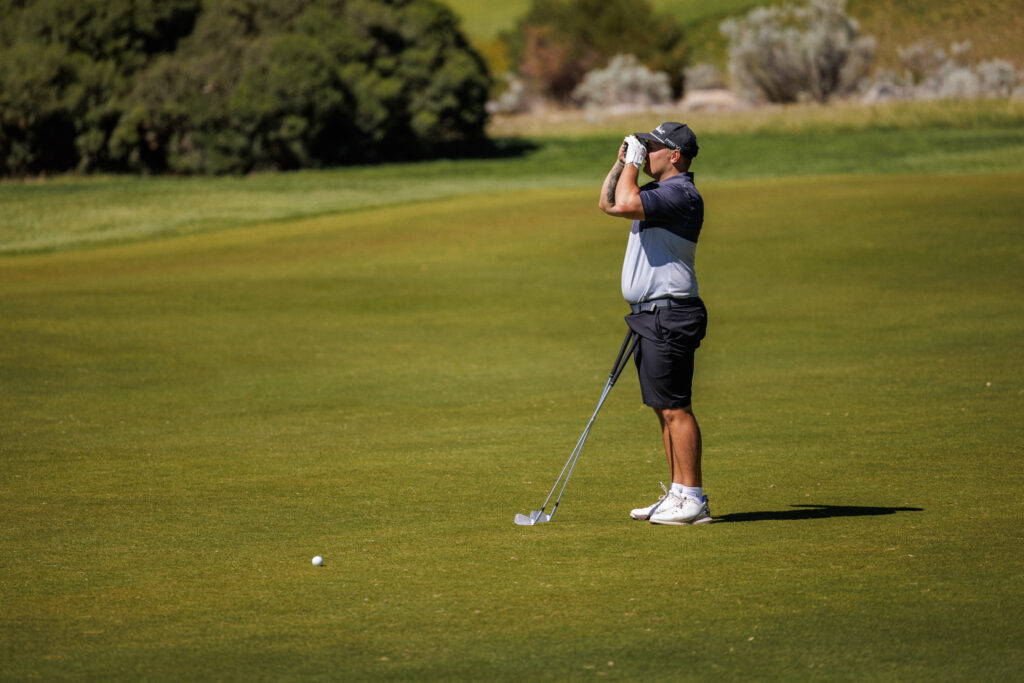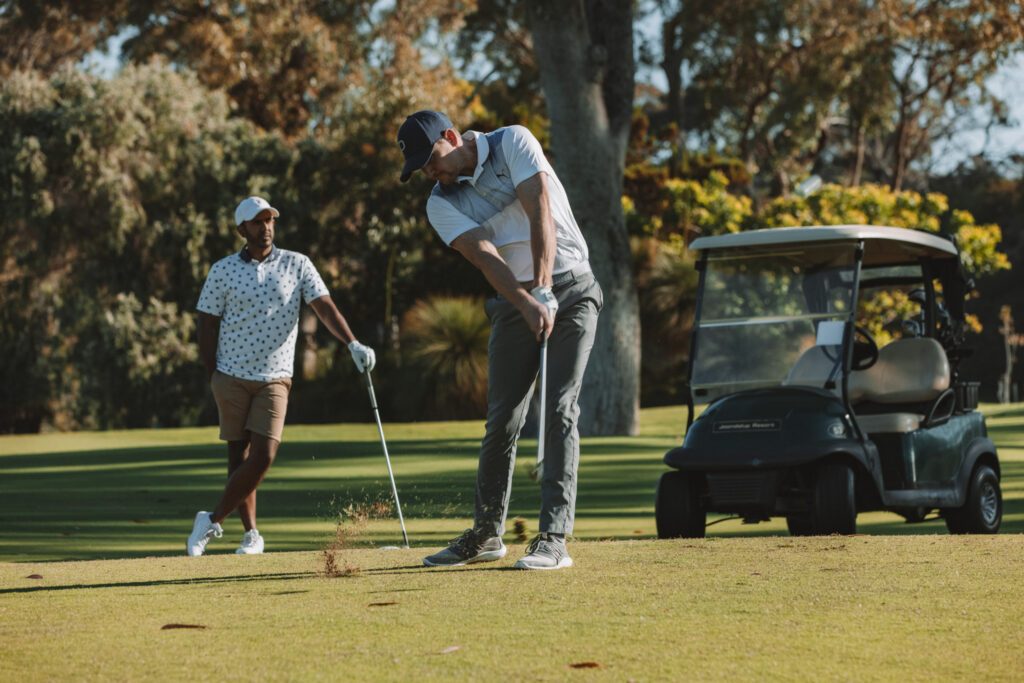In golf, the concept of pace of play is important for ensuring that rounds are enjoyable for everyone on the course. However, many golfers struggle to balance playing efficiently with maintaining the quality of their game. You don’t have to rush through a round to improve your pace; instead, following a few key strategies can help you speed up without impacting your performance.
This article will explore how to manage your pace of play, including tips for being faster on the course, how long a round should take, and what you can do to play faster.

Why Pace of Play Matters
Pace of play is more than just a matter of etiquette. A faster pace keeps the game flowing smoothly, reducing the waiting times between shots for all players. It ensures that golfers behind you aren’t left frustrated or waiting too long, which makes everyone’s experience better on the course. Playing faster also helps maintain your rhythm and focus, which can improve your performance.
A poor pace of play can lead to rounds that drag on for hours, diminishing the enjoyment for both you and your playing partners. But how long should a round really take?
How Long Should a Round Take?
The time it takes to complete a round of golf depends on several factors, such as the course layout, skill level, and whether you’re playing solo or in a group. According to official guidelines from The Golf Collective’s Pace of Play Policy, here are general expectations for how long a round should take:
- 18 holes: Typically takes between 4 to 5 hours to complete.
- 9 holes: Should take around 2 to 2.5 hours.
Course conditions, weather, and whether you are walking or using a cart can affect these times, but these are solid benchmarks. For more structured events, tournaments often have stricter guidelines, with officials monitoring each group to ensure they keep pace.

Tips to Improve Pace of Play Without Rushing
Now that we understand the importance of pace and how long a round should take, let’s dive into practical ways you can speed up your play without feeling rushed.
1. Be Ready to Play
One of the simplest ways to improve your pace is to be ready when it’s your turn. Don’t wait until it’s your time to hit to start thinking about your shot. Instead, while others are playing, use that time to assess your own shot, decide on your club, and prepare to hit. By being ready when it’s your turn, you’ll minimise delays and keep things moving.
2. Play “Ready Golf”
In casual rounds, embrace Ready Golf, which means hitting when you’re ready rather than waiting for the farthest player to play first. This is especially useful on the tee box or fairway. Ready Golf speeds up play by allowing players to hit as soon as they are prepared, reducing unnecessary waiting times.
3. Limit Practice Swings
While it’s important to prepare for your shot, taking multiple practice swings can significantly slow down the game. Limiting yourself to one or two practice swings should be enough to get a feel for the shot without delaying play. Trust your instincts, focus on making a good swing, and keep things moving.
4. Manage Your Time on the Green
Once on the green, you can save time by reading your putt while others are putting. As the Pace of Play Policy suggests, players should be ready to hit their putt when it’s their turn, without spending excessive time lining up shots. By keeping your green time efficient, you contribute to a faster overall round.

5. Use the Cart or Walking Time Wisely
If you’re using a cart, drop off one player at their ball and continue to the next player’s location. This reduces waiting times and keeps the game moving. If you’re walking, head directly to your ball while still staying mindful of others. Using time between shots efficiently is key to keeping the round flowing smoothly.
6. Avoid Long Searches for Lost Balls
Losing a ball is common in golf, but spending too much time looking for it can slow down the entire round. Golf’s official rules allow for a maximum of three minutes to search for a lost ball. If you can’t find it within that time, it’s best to take a drop and move on.
To avoid delays, consider carrying extra balls in your pocket or bag so that you’re ready to hit a provisional ball immediately after losing one.
7. Know When to Pick Up
In casual rounds or social games, it’s perfectly acceptable to pick up your ball if you’re having a bad hole. If you’re far over par and struggling, conceding the hole can help keep the pace of play consistent without sacrificing the overall enjoyment of the round.
8. Respect the Group Behind You
A good way to gauge your pace of play is to keep an eye on the group behind you. If they’re constantly waiting on your shots, it may be time to speed up. If the delay is unavoidable, such as due to a difficult hole or lost ball, it’s courteous to allow the group behind you to play through. This keeps everyone’s pace steady and minimizes frustration on the course.

What Can I Do to Play Faster?
In addition to the tips mentioned above, here are a few extra considerations for playing faster:
- Use Technology: Golf apps and range finders can help you quickly measure distances and select the right club, reducing decision-making time.
- Track Your Time: Pay attention to the time it takes for your group to complete each hole. If you notice the round is dragging, encourage your group to focus on playing more efficiently.
- Avoid Overthinking: While golf is a game of strategy, over analyzing each shot can slow down your pace. Trust your instincts, make your decisions confidently, and keep the game flowing.
Conclusion
Maintaining a good pace of play is essential for enjoying the game and ensuring that everyone has a pleasant experience on the course. By being ready, limiting unnecessary delays, and adopting Ready Golf, you can improve your pace without rushing through your shots.
Next time you head out to play, consider these tips and see how much smoother and more enjoyable your round can be. A steady, efficient pace not only enhances your own game but also shows respect for others on the course.














